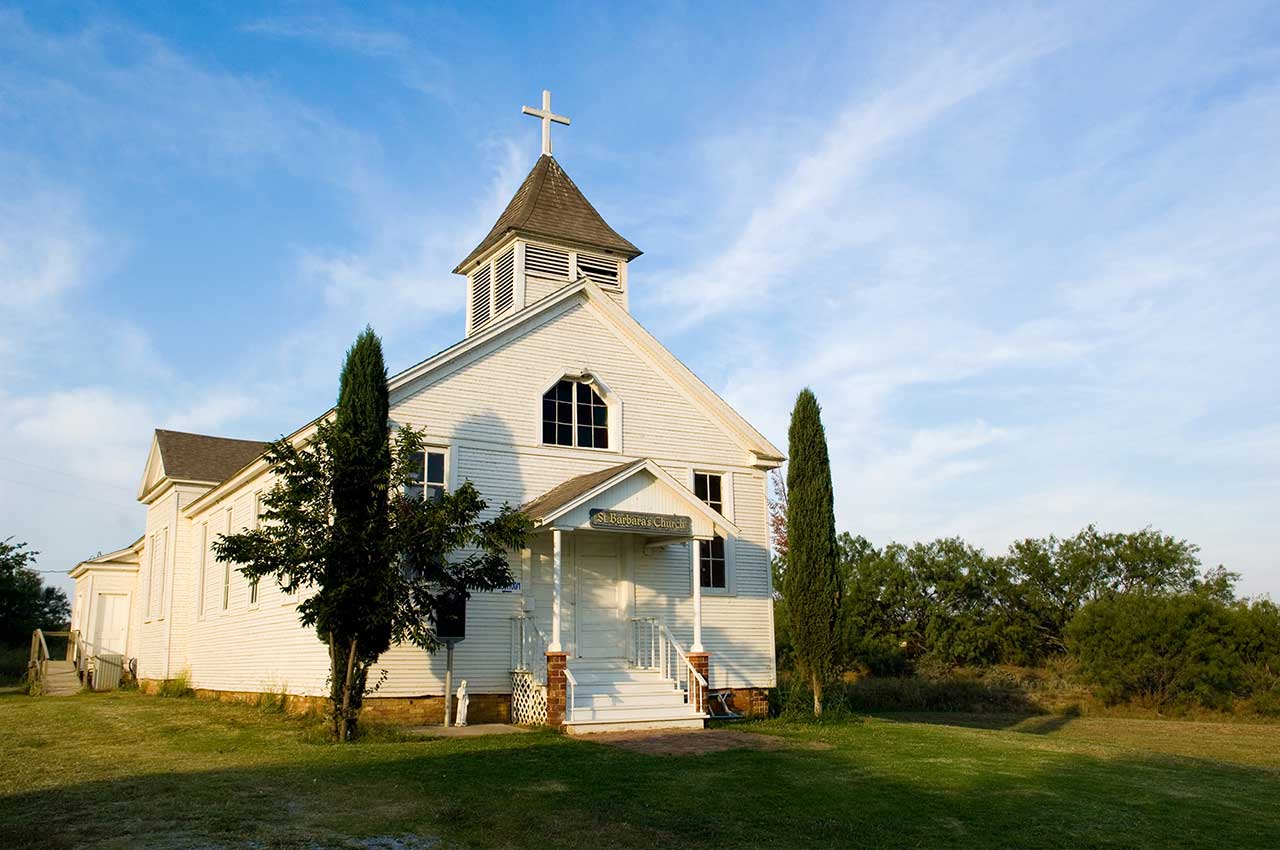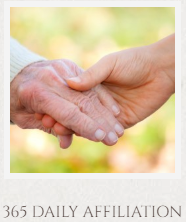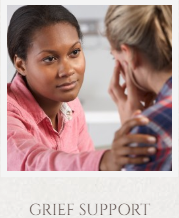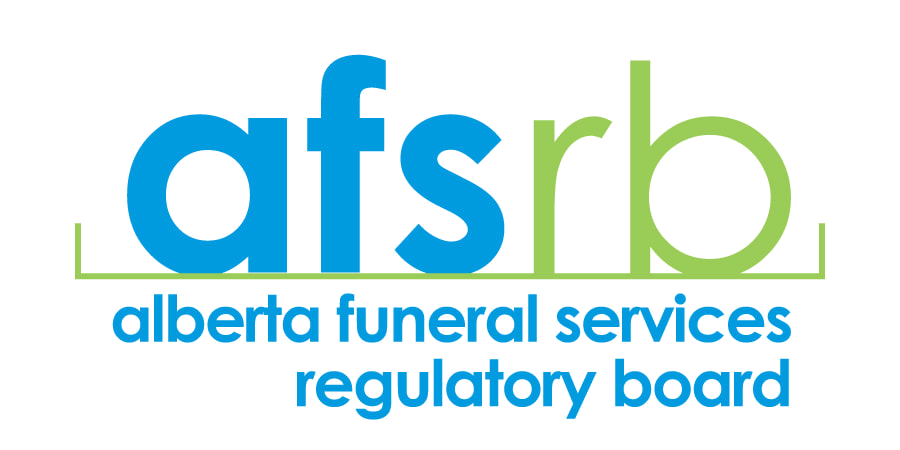Helping Families and Friends Honour Their Little One
|
Still Birth |
Neonatal Loss |
Young Baby Loss |
Spending time with your baby after a neonatal death
When a baby dies shortly after birth parents will often have barely seen their child without being surrounded by medical equipment.
During this heartbreaking time being able to hold your baby and spend time with your baby without any equipment can help with the grieving process and give you memories that can help you cope with grief later.
All hospitals should offer you and your family time alone with your baby, to hold them, take photos or footprints. Parents have told us that in spite of the grief this is a very special time, a time to create memories and acknowledge your baby’s existence in the world.
Holding your baby
After your baby dies you’ll be able to choose whether you see, hold and spend time with your baby.
Don’t rush this time. Think about how you feel now, but also how you might feel in the future. Many mums told us that the time they spent holding their baby was a very precious memory to them afterwards.
Spending time with your baby
You might want to choose special clothes to dress your baby, wrap them in a special blanket or bathe them.
You might want to sleep with your baby in a cot next to you for the night. The hospital may be able to provide a special cold cot for this.
You might want to read a story to your baby or sing to them.
Take as much time as you need. It is your baby, and your decision. It is up to you who is with you and who is not. You will get support from hospital staff.
Taking your baby home
Some parents decide to take their baby home with them. It gives you time to grieve together quietly and privately with family and friends.
You can take your baby home directly from the ward once any legal documentation has been completed. If a post-mortem examination is needed you will not be able to take your baby home directly from the ward but you can arrange to have your baby at home after the post-mortem. A post-mortem is usually only needed if the cause of death is unclear. It is decided by the coroner, a government official whose role is to confirm and certify deaths in your area.
How do I take my baby home?
If there is no post-mortem you can take your baby from the hospital ward or from the hospital mortuary. Your baby can be transported in your own car. You may wish to carry your baby in your arms, use a Moses basket or a casket obtained from a funeral director or one that you have made yourself.
You may wish to use the services of a funeral director to bring your baby home but there may be a charge for this service.
Will I need to sign any forms?Before leaving the hospital, you will be asked to sign a form saying that you are taking your baby home and will be arranging their burial or cremation. There is no legal requirement for a funeral service to be held, but the law says that the babies who die after birth should be buried or cremated.
You will be given a Neonatal Death Certificate and will need to contact the Registrar’s Office to register your baby’s death.
At home with my baby
When you are at home, the room that your baby will be in needs to be kept cool and well ventilated. If the weather is hot you can hire room coolers. A funeral director should be able to help.
You can decide the length of time that your baby is at home, within reason. Some parents have their baby at home the day or night before the burial or cremation. For others, a longer period is needed. Your baby’s skin may change during this time, which might be upsetting.
Making a memory box
A memory box is a box or container that holds items related to the birth and life of your baby and that will, in future, allow you to remember your baby and this time with more clarity. Ask your midwife about creating a memory box.
You may want to take photos of the baby or take hand prints or footprints. Your midwife can help with this. You may want to keep any clothes your baby wore or blankets or toys that were with them.
Some hospitals are able to store these keepsakes for you if you aren’t ready to take them home yourself. Or you could put them in a sealed envelope or box, which you can open when you’re ready.
If a twin or triplet has died, you could take a photograph of your babies together. One day you might want to show a surviving child their twin or sibling.
Some hospitals offer a memory booklet to record details and measurements of your baby.
You might want to collect scans, pressed flowers you’ve received, letters, the cord-clamp or your own or your baby’s hospital name band.
‘The things we have to remember Arthur are now some of my most treasured possessions. I wear a locket necklace every day with a photo of him in it and a lock of his hair. We have some beautiful photographs and molds of his footprints. It keeps his memory alive to be surrounded by these mementos.’Kathryn, who lost her son Arthur
Remembering your baby in the future
As time passes, you might want to think about continuing to collect and make memories.
Some parents decide to mark anniversaries. These are likely to be triggers for your grief so be aware of this and look after yourself. Mother’s Day, Father’s Day, the day of your baby’s death and their birthday, the day of the funeral – these can all become difficult days. You might want to think about taking time off work, or marking important dates in some way.
‘Every year on Erin’s birthday, we do something to commemorate her memory. We release biodegradable balloons like we did at her funeral and we take time as a family to do an activity.’Bethan, who lost her daughter Erin
If you have other children, they may want to celebrate their sibling’s birthday.
How you remember your baby is personal to you and your family. Here are some ideas:
“I got really upset about what would have been Rhianna’s first day of school. When I saw all the little five year olds, I burst into tears.” Kerry, who lost her daughter Rhianna Lily
Be kind to yourself. Don’t expect too much. Give yourself time and space to grieve and to remember your baby.
Say goodbye to your baby through a ceremony
Planning a funeral or memorial for your baby can be a special way to commemorate your their memory. You’re legally required to bury or cremate your baby’s body but you do not need a formal funeral for this.
“The service was a lovely simple service, just the three of us, with Rhianna Lily in my arms the whole time. In her white blanket that had held her mummy and held her brother. It was such an important blanket and one that she had to have with her, it was the only thing that we could give her and I was so grateful that even though she’d been changed no one had removed that blanket from her.”Kerry, who lost her baby Rhianna Lily
It is your decision whether you have a small, private ceremony or funeral for immediate family, or whether you decide to have a bigger funeral for your baby and invite friends and extended family.
Read more about planning a funeral or arranging a blessing for your baby
When a baby dies shortly after birth parents will often have barely seen their child without being surrounded by medical equipment.
During this heartbreaking time being able to hold your baby and spend time with your baby without any equipment can help with the grieving process and give you memories that can help you cope with grief later.
All hospitals should offer you and your family time alone with your baby, to hold them, take photos or footprints. Parents have told us that in spite of the grief this is a very special time, a time to create memories and acknowledge your baby’s existence in the world.
Holding your baby
After your baby dies you’ll be able to choose whether you see, hold and spend time with your baby.
Don’t rush this time. Think about how you feel now, but also how you might feel in the future. Many mums told us that the time they spent holding their baby was a very precious memory to them afterwards.
Spending time with your baby
You might want to choose special clothes to dress your baby, wrap them in a special blanket or bathe them.
You might want to sleep with your baby in a cot next to you for the night. The hospital may be able to provide a special cold cot for this.
You might want to read a story to your baby or sing to them.
Take as much time as you need. It is your baby, and your decision. It is up to you who is with you and who is not. You will get support from hospital staff.
Taking your baby home
Some parents decide to take their baby home with them. It gives you time to grieve together quietly and privately with family and friends.
You can take your baby home directly from the ward once any legal documentation has been completed. If a post-mortem examination is needed you will not be able to take your baby home directly from the ward but you can arrange to have your baby at home after the post-mortem. A post-mortem is usually only needed if the cause of death is unclear. It is decided by the coroner, a government official whose role is to confirm and certify deaths in your area.
How do I take my baby home?
If there is no post-mortem you can take your baby from the hospital ward or from the hospital mortuary. Your baby can be transported in your own car. You may wish to carry your baby in your arms, use a Moses basket or a casket obtained from a funeral director or one that you have made yourself.
You may wish to use the services of a funeral director to bring your baby home but there may be a charge for this service.
Will I need to sign any forms?Before leaving the hospital, you will be asked to sign a form saying that you are taking your baby home and will be arranging their burial or cremation. There is no legal requirement for a funeral service to be held, but the law says that the babies who die after birth should be buried or cremated.
You will be given a Neonatal Death Certificate and will need to contact the Registrar’s Office to register your baby’s death.
At home with my baby
When you are at home, the room that your baby will be in needs to be kept cool and well ventilated. If the weather is hot you can hire room coolers. A funeral director should be able to help.
You can decide the length of time that your baby is at home, within reason. Some parents have their baby at home the day or night before the burial or cremation. For others, a longer period is needed. Your baby’s skin may change during this time, which might be upsetting.
Making a memory box
A memory box is a box or container that holds items related to the birth and life of your baby and that will, in future, allow you to remember your baby and this time with more clarity. Ask your midwife about creating a memory box.
You may want to take photos of the baby or take hand prints or footprints. Your midwife can help with this. You may want to keep any clothes your baby wore or blankets or toys that were with them.
Some hospitals are able to store these keepsakes for you if you aren’t ready to take them home yourself. Or you could put them in a sealed envelope or box, which you can open when you’re ready.
If a twin or triplet has died, you could take a photograph of your babies together. One day you might want to show a surviving child their twin or sibling.
Some hospitals offer a memory booklet to record details and measurements of your baby.
You might want to collect scans, pressed flowers you’ve received, letters, the cord-clamp or your own or your baby’s hospital name band.
‘The things we have to remember Arthur are now some of my most treasured possessions. I wear a locket necklace every day with a photo of him in it and a lock of his hair. We have some beautiful photographs and molds of his footprints. It keeps his memory alive to be surrounded by these mementos.’Kathryn, who lost her son Arthur
Remembering your baby in the future
As time passes, you might want to think about continuing to collect and make memories.
Some parents decide to mark anniversaries. These are likely to be triggers for your grief so be aware of this and look after yourself. Mother’s Day, Father’s Day, the day of your baby’s death and their birthday, the day of the funeral – these can all become difficult days. You might want to think about taking time off work, or marking important dates in some way.
‘Every year on Erin’s birthday, we do something to commemorate her memory. We release biodegradable balloons like we did at her funeral and we take time as a family to do an activity.’Bethan, who lost her daughter Erin
If you have other children, they may want to celebrate their sibling’s birthday.
How you remember your baby is personal to you and your family. Here are some ideas:
- You may want to get a piece of jewellery made, engraved with your baby’s name or their hand or footprint.
- You may want to plant a tree – in a pot so you can take it with you if you move, or in a garden or special place.
- You could choose a special candle holder and light a candle when you want to have quiet time or on special dates.
“I got really upset about what would have been Rhianna’s first day of school. When I saw all the little five year olds, I burst into tears.” Kerry, who lost her daughter Rhianna Lily
Be kind to yourself. Don’t expect too much. Give yourself time and space to grieve and to remember your baby.
Say goodbye to your baby through a ceremony
Planning a funeral or memorial for your baby can be a special way to commemorate your their memory. You’re legally required to bury or cremate your baby’s body but you do not need a formal funeral for this.
“The service was a lovely simple service, just the three of us, with Rhianna Lily in my arms the whole time. In her white blanket that had held her mummy and held her brother. It was such an important blanket and one that she had to have with her, it was the only thing that we could give her and I was so grateful that even though she’d been changed no one had removed that blanket from her.”Kerry, who lost her baby Rhianna Lily
It is your decision whether you have a small, private ceremony or funeral for immediate family, or whether you decide to have a bigger funeral for your baby and invite friends and extended family.
Read more about planning a funeral or arranging a blessing for your baby
Spending time with your baby before the funeral
Burial
If you choose a hospital funeral it may not be possible for your baby to be buried. Ask your hospital about your options.
Shared grave
If your hospital does have a burial option, it may be in a shared grave with other babies. They would be in their own coffin.
It may comfort you to know that that your baby is not alone, but this is not for everyone.
There will be no headstone for shared graves. However, there may be a place to put a plaque elsewhere in the cemetery.
It may comfort you to know that that your baby is not alone, but this is not for everyone.
There will be no headstone for shared graves. However, there may be a place to put a plaque elsewhere in the cemetery.
Ceremony
Hospital funerals may be shared and are conducted by the chaplain in the hotel chapel, crematorium or cemetery chapel. No religion will be referenced so they will suit all denominations and parents regardless of their beliefs. You can make requests about what you would like but it may not be possible for shared ceremonies. Speak to the chaplain about what you would like and see what your options are.
You should be able to invite close family and friends to the ceremony if you choose.
Some hospitals may provide an individual ceremony. In this case, you would have more choice about what you want. It will be similar to what you would expect if you planned a funeral yourself or with the help of a funeral director.
You should be able to invite close family and friends to the ceremony if you choose.
Some hospitals may provide an individual ceremony. In this case, you would have more choice about what you want. It will be similar to what you would expect if you planned a funeral yourself or with the help of a funeral director.
Planning the ceremony for your baby
If you don’t choose a shared funeral at the hospital, what happens at the ceremony is up to you.
It can be very small, with just family and your closest friend, or you may decide not to invite anyone at all.
If you’re religious, you may have a set structure to follow. Although this may give you less freedom to adapt the ceremony, it can provide religious or spiritual comfort.
If you are not religious, you could ask the funeral director, an independent celebrant or even a close family member or friend to lead the ceremony. It can be as personal as you want it to be.
Here are some things other parents have had in their ceremonies:
It can be very small, with just family and your closest friend, or you may decide not to invite anyone at all.
If you’re religious, you may have a set structure to follow. Although this may give you less freedom to adapt the ceremony, it can provide religious or spiritual comfort.
If you are not religious, you could ask the funeral director, an independent celebrant or even a close family member or friend to lead the ceremony. It can be as personal as you want it to be.
Here are some things other parents have had in their ceremonies:
- poems
- readings
- live or recorded music
- bio-degradable balloon release
- lighting candles
- asking for donations to the hospital that looked after their baby or a baby charity
- avoiding black and asking guests to wear bright colours or white instead
- having a white coffin and asking family, friends and siblings to write messages on it
- encouraging family and friends to write letters to place in the coffin
- making an order of service with a picture of their baby, with their name and dates on the front.
Choosing an outfit
You can choose what you want your baby to wear in their coffin. For very small or premature babies, some hospitals stock tiny clothes that they may be able to give you. Or you may want to bring some special clothes from home. Some parents keep a copy of the outfit in their memory box. You can also wrap your baby in a special blanket if you like.
There may be other items that you want to include in your baby’s coffin. Some parents say that it’s comforting to know their baby isn’t alone in there. You might like to include photos of your family, a special teddy or toy, or a letter you’ve written to them. Siblings could draw a picture or write their own letter to their baby sister or brother.
There may be other items that you want to include in your baby’s coffin. Some parents say that it’s comforting to know their baby isn’t alone in there. You might like to include photos of your family, a special teddy or toy, or a letter you’ve written to them. Siblings could draw a picture or write their own letter to their baby sister or brother.
|
Burial |
Cremation |
Own grave
If your baby is in their own grave, it may be in a special area of the cemetery for babies. Find out what you are allowed on the grave as there may be restrictions.
Organising the funeral yourself or using a funeral director means you will have the choice between burial and cremation. If you choose a burial, there are options about where your baby can be buried, including:
Organising the funeral yourself or using a funeral director means you will have the choice between burial and cremation. If you choose a burial, there are options about where your baby can be buried, including:
- a cemetery
- a green woodland site
- in consecrated grounds
- on private land.
Cremation
The hospital may offer you an individual cremation or a shared cremation with other babies. If available, individual cremation is offered for babies who died after birth or were stillborn.
Cremated Remains
The hospital should let you know when your baby’s ashes will be ready to be collected.
By law, any baby born after 24 weeks must be either buried or cremated. However, it is up to the parents whether or not to hold a service.
ORGANIZING a funeral
It’s your decision how you choose to say goodbye to your child. There are lots of people who can help you with funeral arrangements.
Funeral directors
If you want more choice, you can work with a funeral director. You may have to pay a fee but most funeral homes will offer a reduced rate.
The hospital
Most hospitals can arrange a funeral for you, usually free of charge or for a small fee.
For hospital funerals, a lot of the paperwork and decisions will be done for you and you may find that your choices are limited. As an example, some hospitals provide shared ceremonies and shared graves, whereas others may only be able to offer cremation.
For hospital funerals, a lot of the paperwork and decisions will be done for you and you may find that your choices are limited. As an example, some hospitals provide shared ceremonies and shared graves, whereas others may only be able to offer cremation.
ORGANIZING the funeral yourself
It is possible, if you want and feel able, to arrange the funeral yourself. This will involve speaking directly to the crematorium or cemetery.
You can include whatever you like in your ceremony – you may have important religious wishes that you would like recognised, or you may want a non-religious event with poetry and singing.
"Daffodils were there the whole time she was alive. And we ended up having daffodils for her funeral because they’re so bright and they’re so pretty, but they don’t live very long. And that was Melody.”Julz, Melody’s mum
Some parents keep it private to just the two of them, or a very small group of people. And you can also choose not to be present at all. If this is what you want, the hospital and undertaker will make all the arrangements for you.
Try to take some time before making any decisions, and remember that you can change your mind.
You can include whatever you like in your ceremony – you may have important religious wishes that you would like recognised, or you may want a non-religious event with poetry and singing.
"Daffodils were there the whole time she was alive. And we ended up having daffodils for her funeral because they’re so bright and they’re so pretty, but they don’t live very long. And that was Melody.”Julz, Melody’s mum
Some parents keep it private to just the two of them, or a very small group of people. And you can also choose not to be present at all. If this is what you want, the hospital and undertaker will make all the arrangements for you.
Try to take some time before making any decisions, and remember that you can change your mind.
When should our baby’s funeral take place?
There is no rule or law about when your baby’s funeral has to happen, but normally it will be within 2-3 weeks. Take your time and think about what you would like to do. Talking to those close to you might help and they may be able to assist you in your planning.
Although the hospital will probably want to know if you’d like them to arrange your baby’s funeral before you go home, the staff can let you know who to contact if you haven’t yet decided.
Don’t feel under pressure to rush any decisions
Although the hospital will probably want to know if you’d like them to arrange your baby’s funeral before you go home, the staff can let you know who to contact if you haven’t yet decided.
Don’t feel under pressure to rush any decisions
Where will my baby be kept before the funeral?
Before their burial or cremation, your baby will be kept safely in the hospital mortuary or the funeral home. You can visit them there.
Registering your baby’s life and death
Before you can hold a funeral, you will need to obtain a birth and death certificate for your baby. At the same time as getting this you’ll also be given a form to permit burial or cremation, which you can then pass on the funeral director or hospital, depending on who is making arrangements for you.
The hospital or funeral director can help you with this and any other forms.
Find out more about registering your baby’s life and death.
The hospital or funeral director can help you with this and any other forms.
Find out more about registering your baby’s life and death.
WelcomeWhen we experience the death of someone we love, a service fills several important needs. In this section you’ll learn why it’s important to have a funeral and how it can start you on the path to healing.
A funeral is a time to honor the life of the deceased and celebrate the heritage of their family. We strive to make each funeral a respectful, fulfilling experience that meets the unique needs of each family. |
The Bitterest tears shed over graves are
for words left unsaid and deeds left undone.
– Harriet Beecher Stowe
|
|
Location Map
|
|
|
Calgary & Area Funeral Homes
South Calgary funeral Homes
|
McINNIS & HOLLOWAY Park Memorial Chapel 5008 Elbow Drive S.W. www.mhfh.com McINNIS & HOLLOWAY FishCreek 14441 Bannister Road S.E. www.mhfh.com McINNIS & HOLLOWAY Deerfoot South 12281 40 St. S.E. www.mhfh.com |
SOUTH CALGARY FUNERAL SERVICE 12700 MacLeod Trail S.E. www.dignitymemorial.ca LEYDENS FUNERAL HOME 304 - 18 Avenue S.W. www.dignitymemorial.ca PEACE OF MIND 5502 - 2 Street S.W. EVAN J. STRONG FUNERAL SERVICE 5502 - 2 Street S.W. |
SIMPLY CREMATIONS AND FUNERAL SERVICES 5502 - 2 Street S.W. www.simplycremations.ca PIERSON’S FUNERAL SERVICES 4121 - 17 Avenue S.E www.piersons.ca |
|
McINNIS & HOLLOWAY
Chapel of the Bells 2720 Centre Street N. www.mhfh.com McINNIS & HOLLOWAY Crowfoot 82 Crowfoot Circle N.W. www.mhfh.com McINNIS & HOLLOWAY Eastside Memorial Chapel 5388 Memorial Drive N.E. www.mhfh.com |
CALGARY CREMATORIUM
& FUNERAL SERVICES 3219 - 4 Street N.W. www.hffs.com ALBERTA BURIAL & CREMATION SERVICES 1708 - 16 Avenue N.W. OnlineCremation.ca 3219 - 4 Street N.W. Website: OnlineCremation.ca |
HERITAGE FUNERAL HOME
1708 - 16th Avenue N.W. www.hffs.com FOSTER’S GARDEN CHAPEL 3220 - 4 Street N.W. www.dignitymemorial.com Choice Memorial 4715 13 Street N.E. www.choicememorial.com |
|
OnlineCremation.ca
Website: OnlineCremation.ca MOUNTAIN VIEW FUNERAL HOME 1605 - 100 Street S.E. www.arbormemorial.ca Edenbrook Funeral Home 1605 - 100 Street S.E. www.arbormemorial.ca |
AIRDRIE
McINNIS & HOLLOWAY Airdrie 300 Towerlane Drive, Airdrie www.mhfh.com Alternatives Funeral & Cremation Services 11 East Lake Way NE, Airdrie www.myalternatives.ca |
COCHRANE FUNERAL HOMES
McInnis & Holloway Funeral Home - Cochrane Funeral Home 369 Railway Ave. Cochrane www.mhfh.com Cochrane Country Funeral Home 402 Railway Street W. Cochrane www.cochranefuneralhome.com |
|
McINNIS & HOLLOWAY www.mhfh.com HIGH RIVER FUNERAL HOMES Lyle Reeves Funerals Inc. 115 8 Avenue S.E. High River lylereeves.com |
Snodgrass Funeral Home Ltd. 301 Macleod Trail S.W. High River snodgrassfuneralhomes.com OKOTOKS FUNERAL HOME Snodgrass Funeral Home Ltd. 200 Woodgate Road, Okotoks snodgrassfuneralhomes.com |
STRATHMORE FUNERAL HOME Wheatland Funeral Home Ltd. 202 Lakeside Blvd, Strathmore wheatlandfuneralhome.ca OnlineCremation.ca Website: OnlineCremation.ca |









